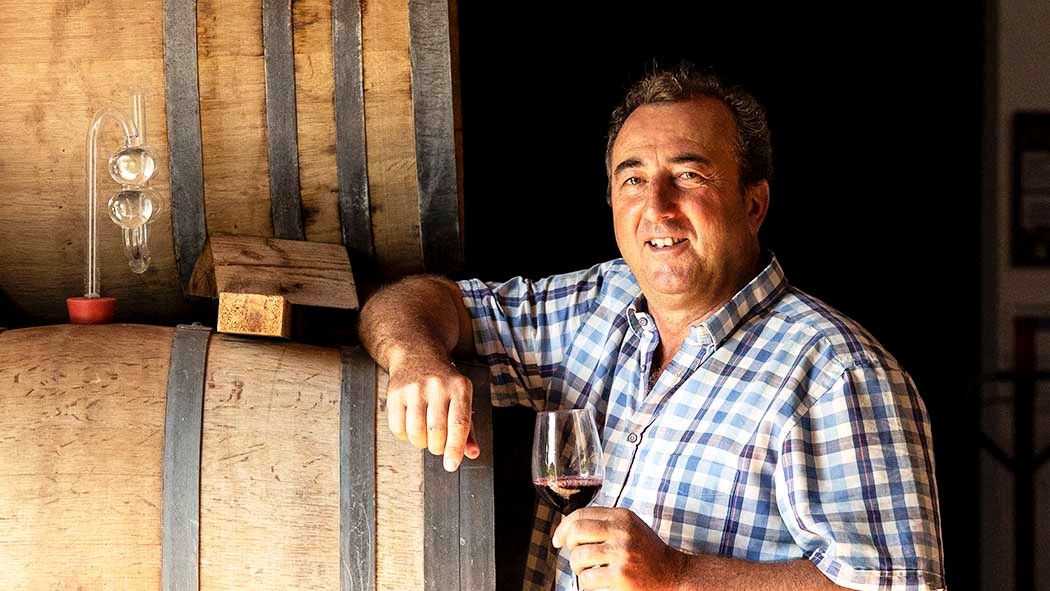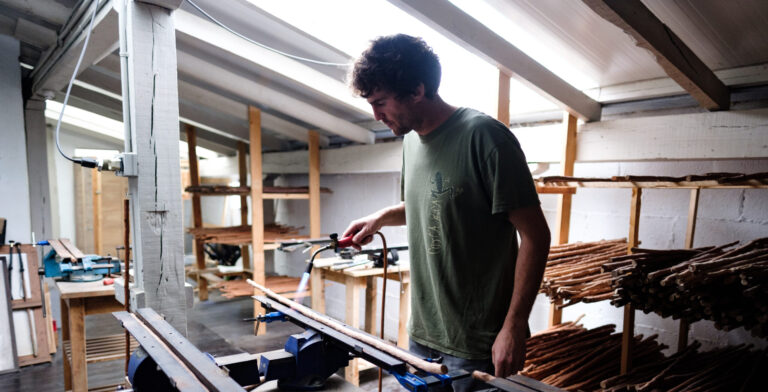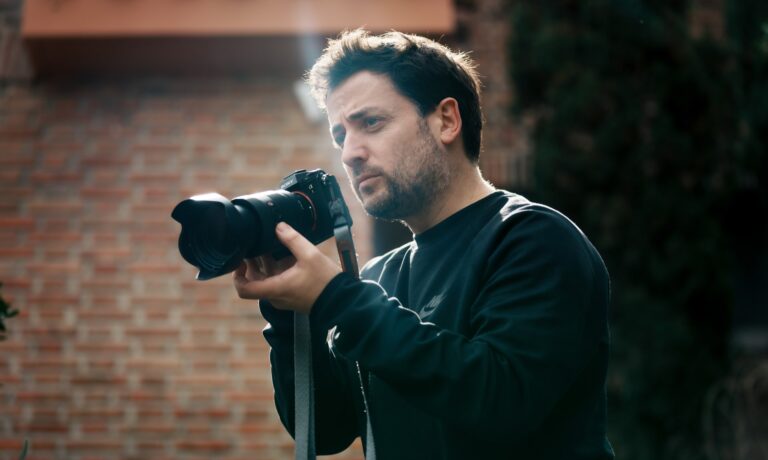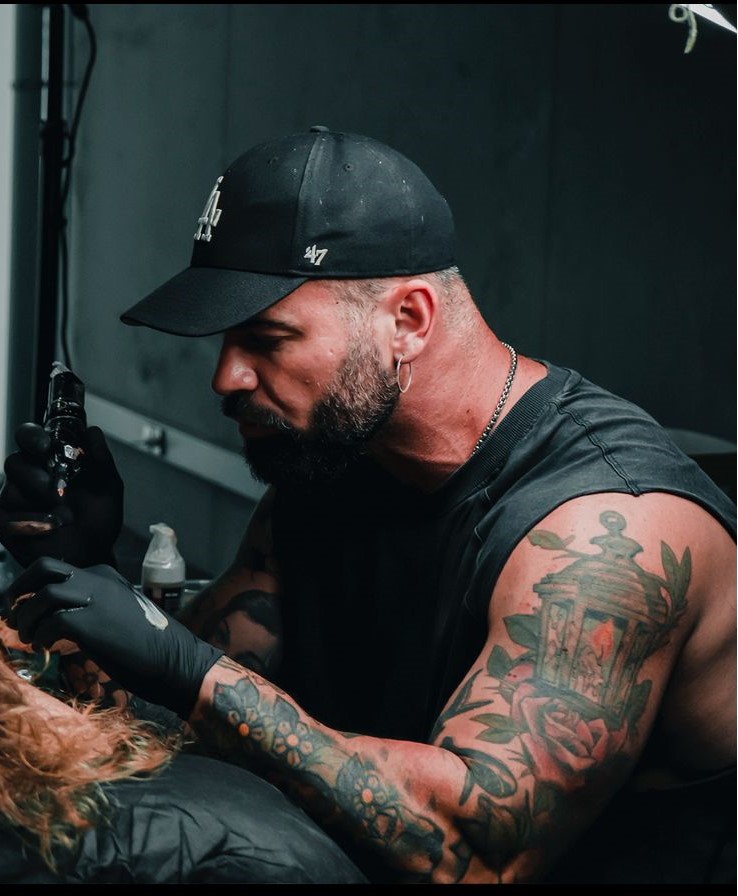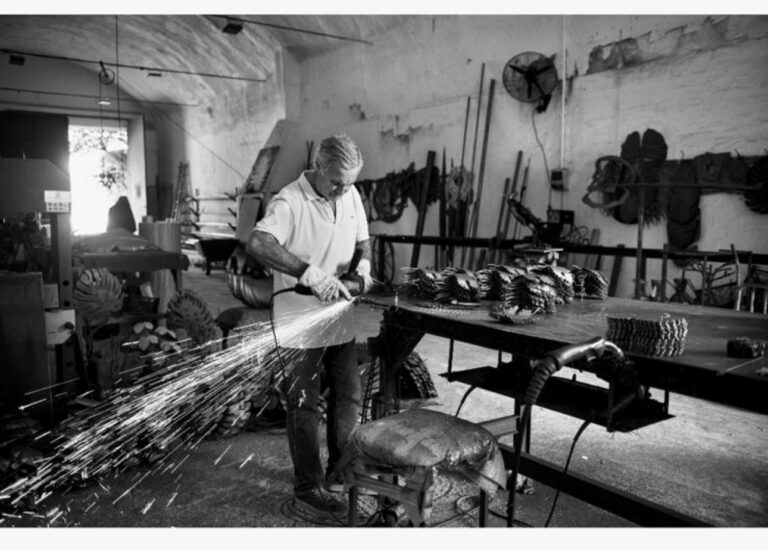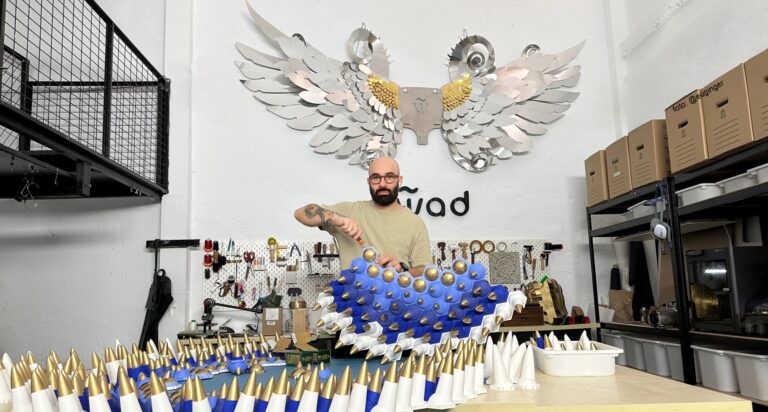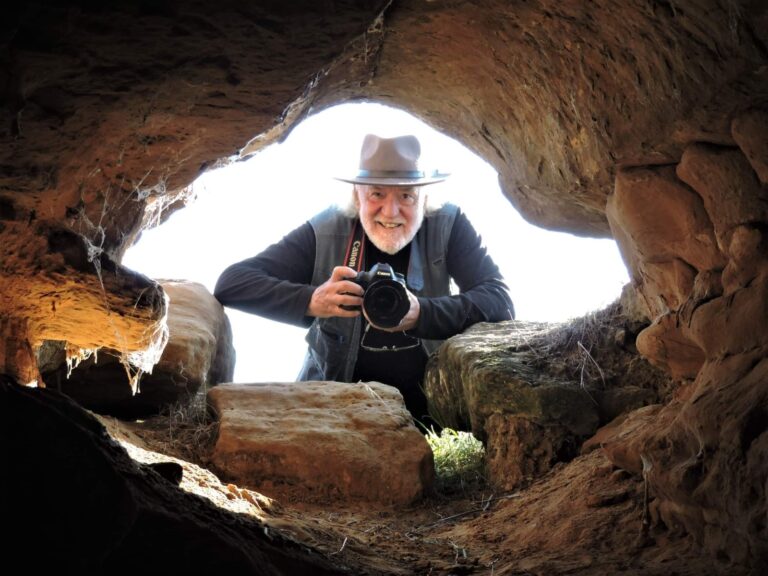Bodega F. Schatz
First, there were the Iberians, then the Romans, and then he, who came from Germany more than forty years ago to look for Finca Sanguijuela, and found it, at the foot of the Ronda mountain range. The rest is history: pioneer in Malaga in obtaining the organic certificate for its wines, cultivation of varieties unique in Spain, strict biodynamic policy, personal control of all processes in the field and winery, study and application of different woods in the barrels for aging, use of sensitive crystallization... in short, artisanal viticulture, of the highest level.
Today, this family winery not only stands out for respecting tradition while innovating but also for producing biodynamic and organic wines of the highest quality, also distinguished with notable international awards.

Federico Schatz, founder and owner of Bodega F. Schatz tells us about his life and his intense work in the winery:
Hello Federico. You have been here for more than forty years. What do you highlight about the white villages between the Sierra de las Nieves, Grazalema, and Ronda?
Well, a lot of things: their people, their landscape, their terroir, and that special microclimate of cold and rainy winters. As I like to say: “the South also exists.”
Grazalema, near here, is one of the places where it rains the most in Spain. In this area, there are dry summers with a natural water stress of about 6 months. And the temperature jumps that some days reach about 30ºC difference between night and day. All this gives the wines an extraordinarily high natural acidity.
Do you believe in working a lot in the vineyard and little in the winery? What does the soil contribute to the final result?
No solo creo en esto, sino que lo practico al 100%. El buen vino no se hace en la bodega, sino en el viñedo, allí hay que estar. Vendimiar es solo recoger el resultado de los duros y correctos trabajos realizados durante los meses anteriores. Así, la uva trae el equilibrio y la armonía perfecta, para que en bodega solo haya que procesarla mecánicamente.
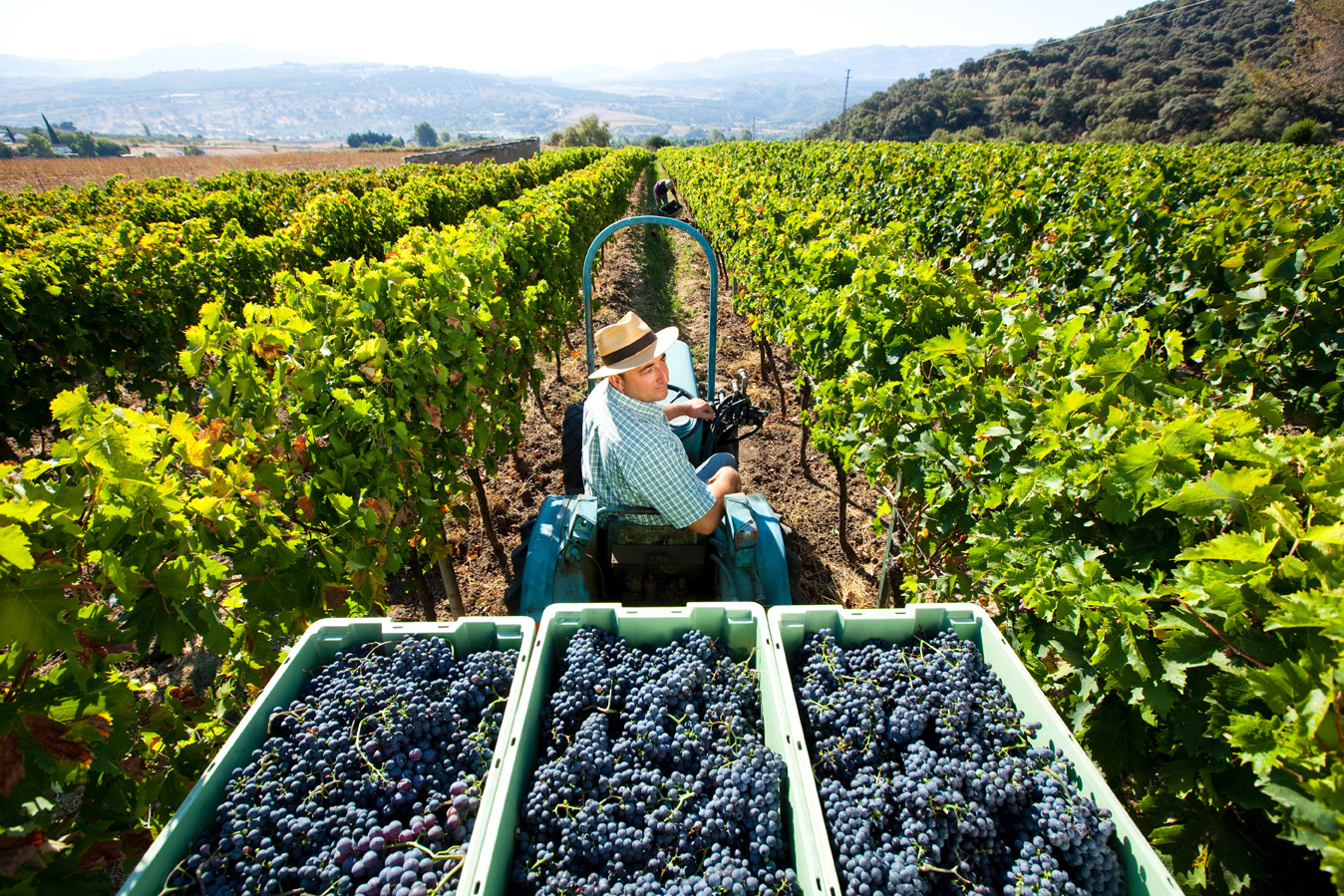
Destem, macerate, punch down, uncover, press, rack, age in barrels or tanks, and that's it. You don't have to add or remove anything from the wines. An old winemaker told his children before he died: "You can make wine even with grapes..."
Can you tell us a little about how you apply the term "biodynamic" to your estate?
It is about installing a perfect harmony between the terroir, the fauna, the flora, and the man on the property. Less is more and it is better to prevent than to cure. "The only shade the vineyard wants is that of man."
Do you have any hobbies outside of your work?
Tasting other wines, especially natural ones, and accompanied by good artisanal food.
Where do you feel most comfortable in the winemaking process?
Clearly in grape tasting, caring for the vines, harvesting, tanks, racking, and barrels…
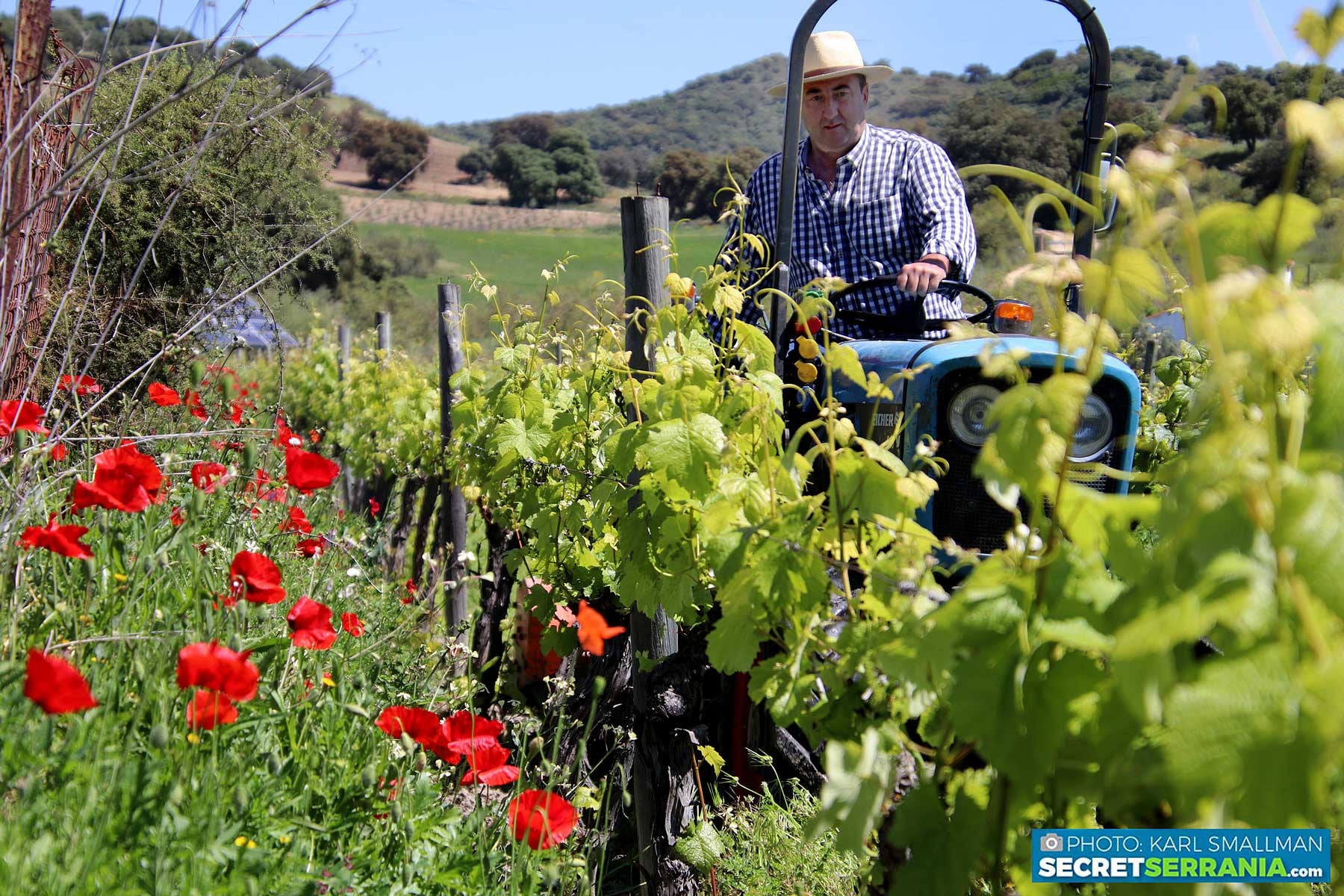
What is your favorite place and monument in Andalusia?
The Serranía de Ronda in general and the Roman Theatre of Acinipo in particular.
And, your favorite grape variety?
The Lemberger that we use 100% for our brand “Acinipo”.
What does the design of your labels mean?
They are drawings of plants used in the well-known biodynamic preparations 502 to 508. They are all wild and native plants that grow in our environment. Already in the 12th century, the German Hildegard von Bingen – a doctor of the Church, a physician, an artist, a naturalist, etc. – spoke of the positive properties of these plants.
Which historical figure would you have liked to invite to spend a day on your estate?
Charles I of Spain and V of Germany.
Our previous guest, GastroBio, left a question. Can you answer it? As follows: Do you think it is important to know the traceability of the fish or seafood we consume?"
Yes, I think that traceability in fish, seafood, or any product we consume is very important, but it must be something well done, understandable, and easy to see, both for the producer and the consumer.

For example, now, for wines harvested from 2024 onwards, it is already mandatory to put on the labels the additives that have been used and the energy values. Years ago, we were not allowed to put the expression "natural wine" on the label or the list of additives that we do not use in the production. It is not necessary to write everything on the label, a QR code can take us to that information.
What are sensitive crystallizations?
They are a qualitative analysis method to study the living forces. With it, the vitality of food is appreciated, and it is one of the few techniques that allow us to distinguish its form of cultivation, providing clues about the manipulations or transformations it has undergone, as well as the deficiencies or diseases of the
Perhaps it is in the context of the world of wine where, despite everything, this “analysis” is best understood, since, even with all the technical and chemical advances that exist, and with all the options that exist to measure the parameters of wine, tasting - that is, sensory analysis - continues to be for the vast majority the main benchmark for qualifying a wine.
We could compare crystallizations with tasting since both are based on somewhat abstract sensory perceptions to make their judgments.

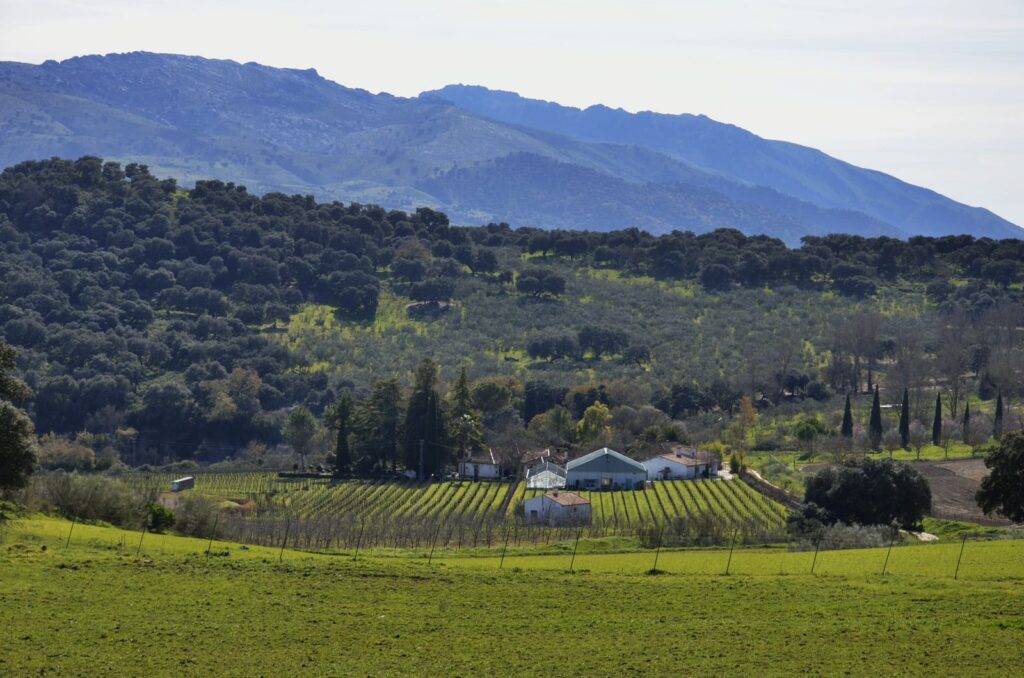
Can I ask you to leave a question for the next guest?
Yes. What does your work contribute to your environment and yourself? Have you wanted to change something in yourself or the community and have you achieved it?

